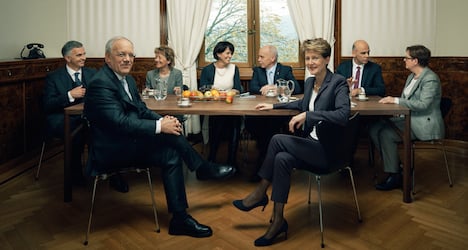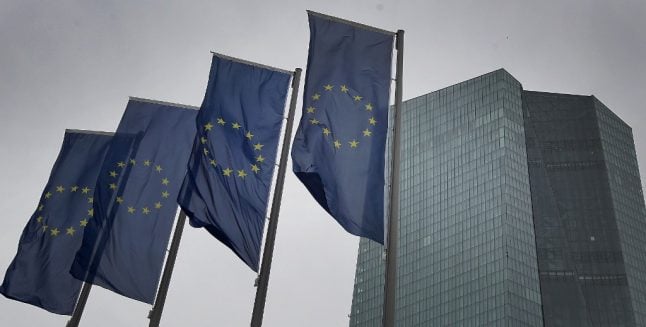In past terms for more than 80 years there were changes due to resignations or a government member’s death.
But not this one.
The outgoing government was also noted for its stability and collegiality, in marked contrast to certain earlier governments, broadcaster RTS noted.
In the run-up to Sunday’s federal elections, the question on political observers’ lips is whether the current government will remain in place.
Currently, the seven-person executive body includes Simonetta Sommaruga, a Social Democratic party member who is serving as president this year in what is a rotating presidency every year, as well as Justice and Police Minister.
Other members are Foreign Affairs Minister Dider Burkhalter (Liberals); Finance Minister Eveline Widmer-Schlumpf (Conservative Democratic Party); Economy Minister Johann Schneider-Amann (Liberals); Environment, Transport, Energy and Communications Minister Doris Leuthard (Christian Democrats); Defence Minister Ueli Maurer (Swiss People’s Party); and Home Affairs Minister Alain Berset (Social Democrats).
While the seven members have their differences, representing parties on the left, the centre-right and the right, they have kept their differences behind closed doors.
In a “serene climate they have been able to work efficiently,” an RTS report commented.
Ten years ago, the government was marked by regular quarrels that burst out in public among such players as Pascal Couchepin of the centre-right Liberals and Christoph Blocher, the Swiss People’s Party member who was voted out of office in 2007.
These spats have been set aside for the past four years.
Former cabinet minister Adolf Ogi of the Swiss People’s Party (SVP) said there was a political reason for the collegiality.
“The parties are afraid of losing their seats,” Ogi told ATS.
“The concordance that we have known for years no longer exists,” he said.
“It’s a bit like the stock market, it has become volatile.”
It may be in the interest of the major parties to leave the government unchanged, since no member has indicated an intention to step down.
But members of the SVP say it’s time the party, which has the most MPs in the lower house of parliament, had two government members.
Felix Müri, vice-president of the SVP’s parliamentary wing, created waves earlier this week when he suggested that the party is ready to leave the government unless it gains an extra seat.
But other party officials later downplayed the threat saying the SVP has no intention of forming an opposition.
The government will be elected next month by a joint sitting of the upper and lower houses of parliament following the outcome of Sunday’s elections.
One of the central questions is whether Eveline Widmer-Schlumpf can hang on to her seat.
The former SVP member was first elected to the seven-member body in 2007 when fellow party member and incumbent minister Christoph Blocher was voted out.
Widmer-Schlumpf, from the canton of Graubünden, was subsequently turfed from the SVP and joined the newly created Conservative Democratic Party.
Her legitimacy has been questioned because of the small size of her party but she was subsequently re-elected in 2011.
Her re-election this time round may be more difficult.
François Nordmann, diplomat and former Swiss ambassador to the UK, is among those urging Widmer-Schlumpf to stay.
In a commentary for Le Temps newspaper, he praised the way she has handled her finance portfolio, including the measures she has taken to deal with tax evasion issues, approving the automatic exchange of information with other countries, for example.
First, though, it will be up to Widmer-Sclumpf to decide if she wants to stay on, once the parliamentary election results are known.



 Please whitelist us to continue reading.
Please whitelist us to continue reading.
Member comments